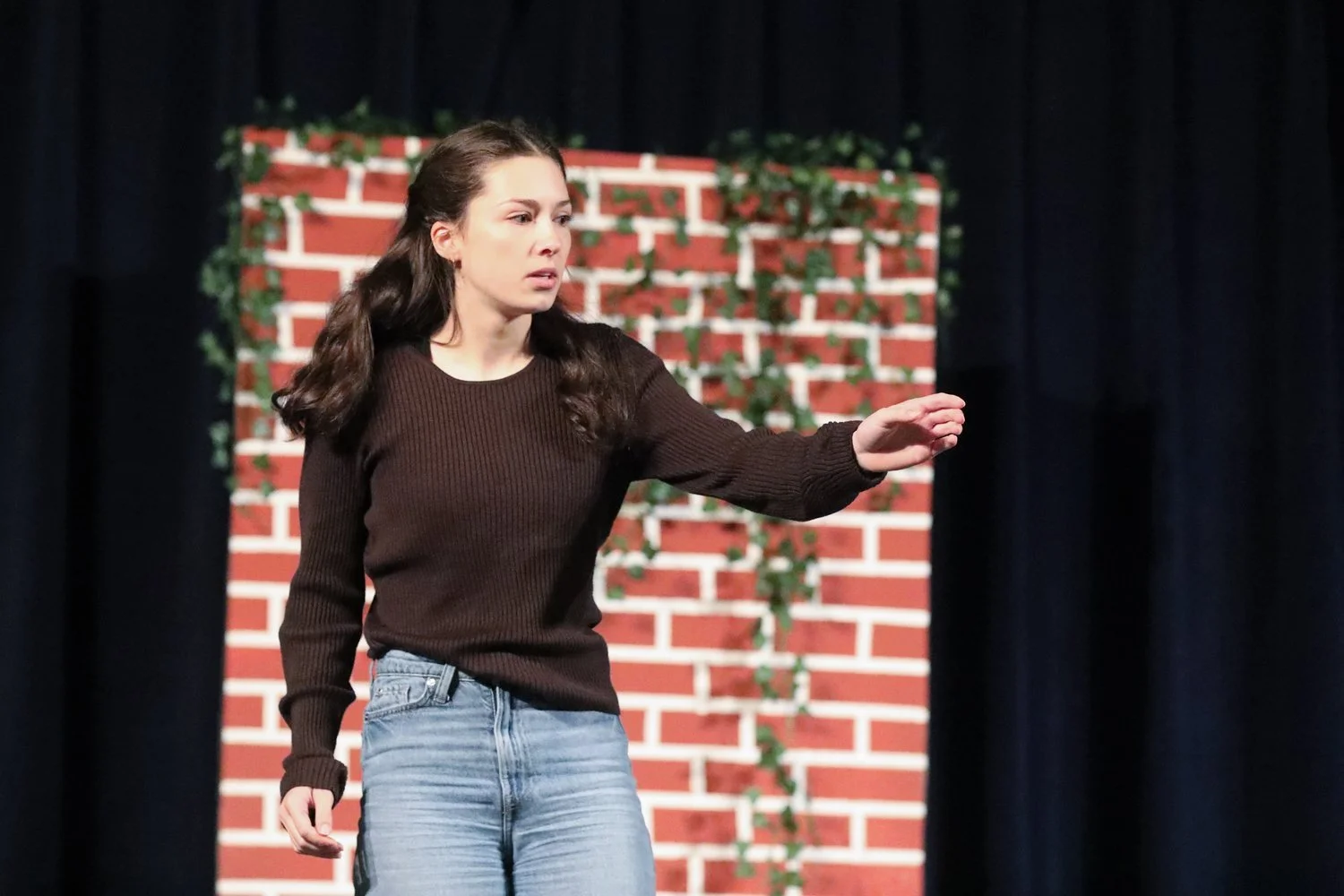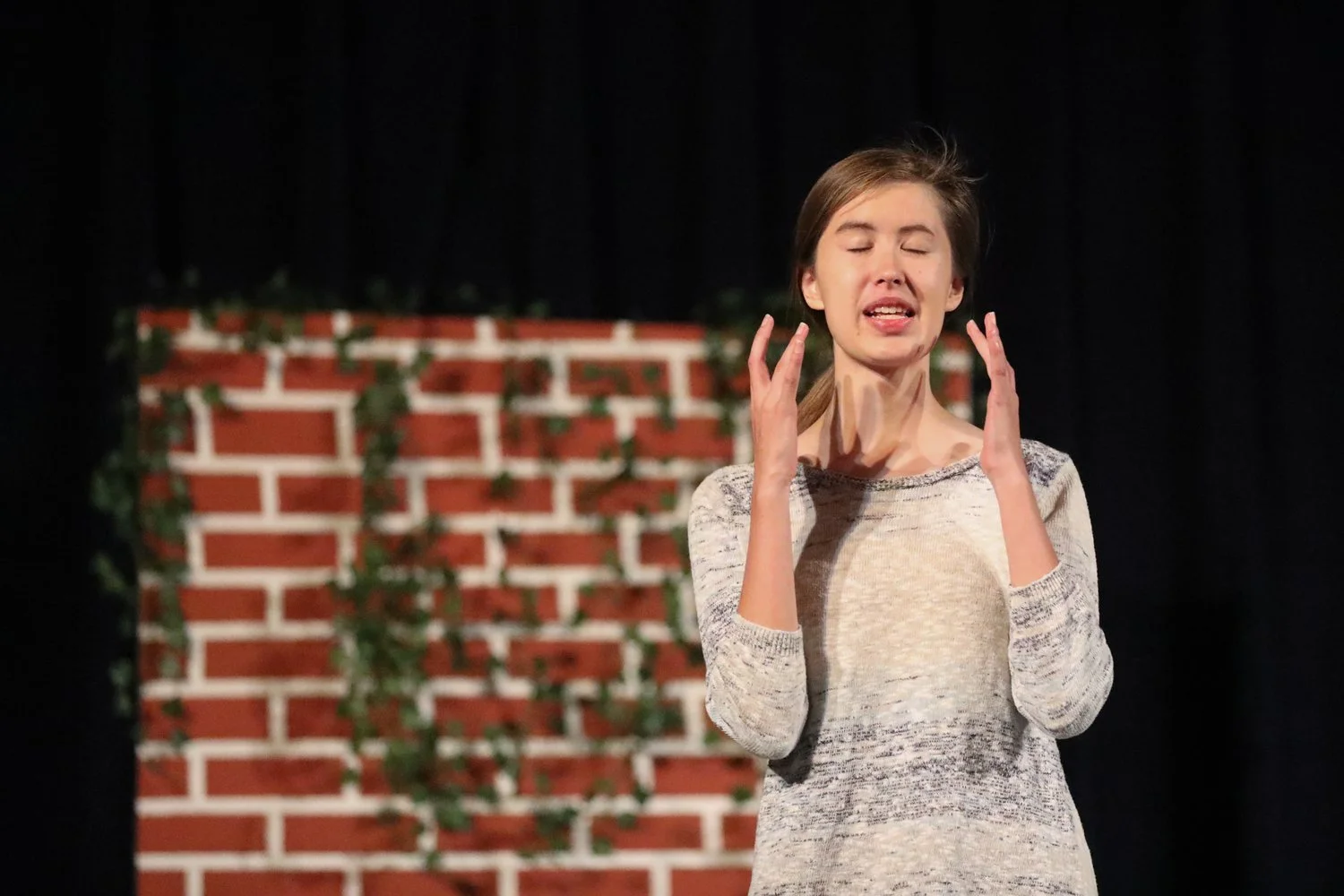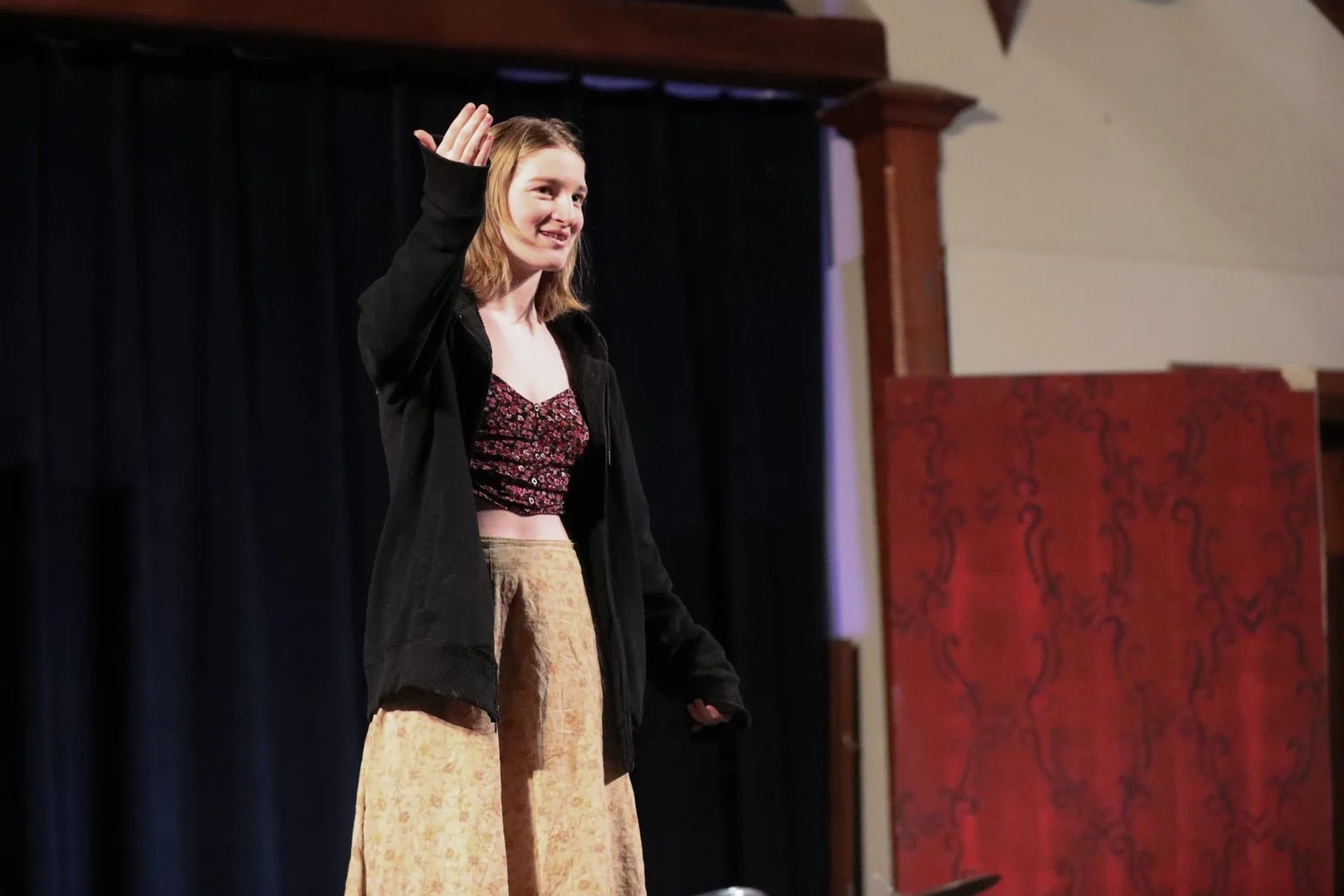Shakespeare on the Hill
Kait Easterling performs in MSA’s Shakespeare monologue competition.
In Shakespeare's play Henry IV, Part 1, young Prince Hal says to Jack Falstaff: "Wisdom cries out in the streets and no man regards it." In this scene, they are engaged in a lighthearted conversation while planning a robbery. However, this remark carries deeper significance both within the play and in real life.
Prince Hal uses a biblical reference to explain why he spends time in the streets of London with common criminals instead of with his father, the king of England, and other nobles. In doing so, he reminds us that valuable lessons can be found in unexpected places and from people we might initially overlook.
This idea extends to Shakespeare's poetry as well. His plays contain wisdom that may not always be immediately apparent, and it is the responsibility of the audience to recognize and appreciate it.
Uncovering these important insights is made easier when the actors understand the significance of the lines they deliver and possess the skill and talent to convey them convincingly.
Recently, our school witnessed eight students taking the stage on a Monday morning to compete in the first round of the ESU Shakespeare Monologue competition. These students recited some of Shakespeare's most famous monologues, ranging from Juliet's lament over Romeo's banishment to Macbeth's tormented reflections on Duncan's murder.
Among the impressive performances, Kaitlyn Easterling's captivating delivery earned her the honor of representing our school at the regional ESU Shakespeare Monologue competition at the Blackfriars Playhouse in Staunton.
In the words of Jacques from As You Like It, "All human beings are merely actors." The ESU Shakespeare Monologue competition offers MSA students the opportunity to step into the roles of actors for a few weeks. Through their performances, these students not only showcase their individual talents but also celebrate the wisdom that cries out in Shakespeare's timeless work. And fortunately the MSA community was there to regard it.








